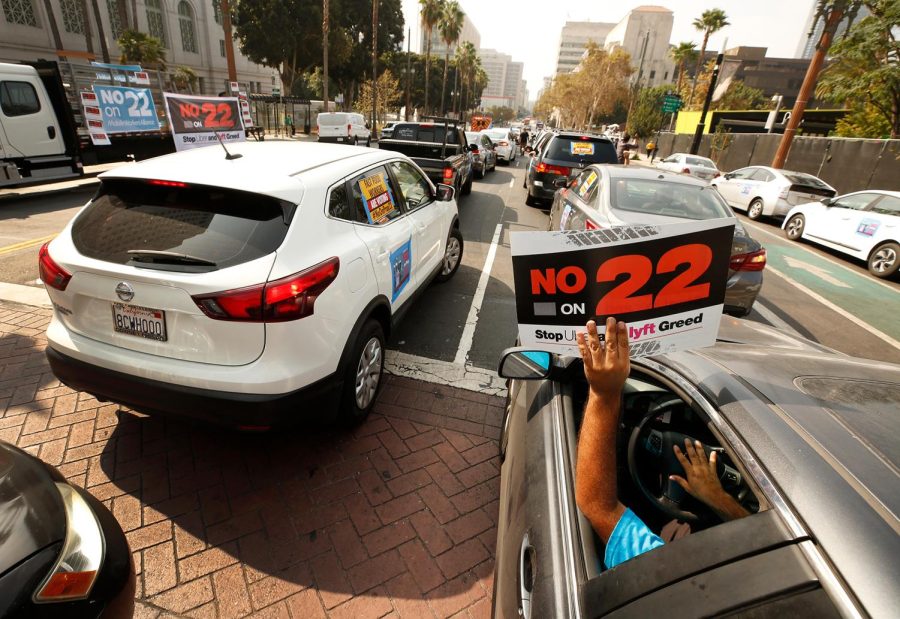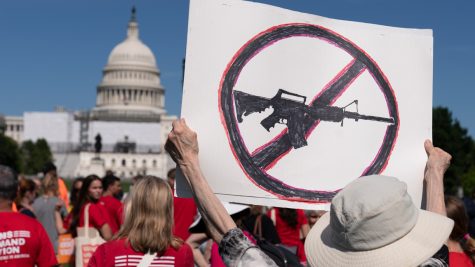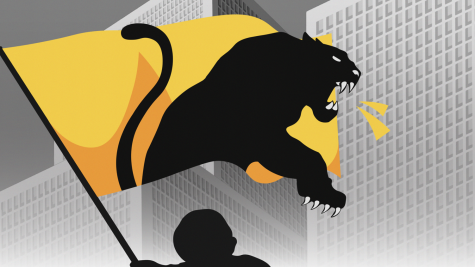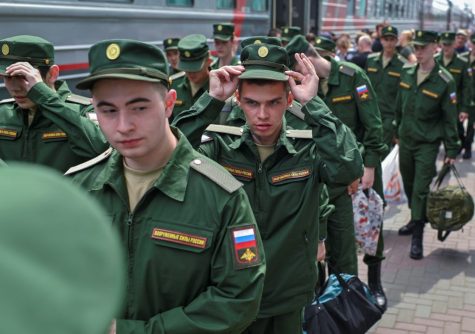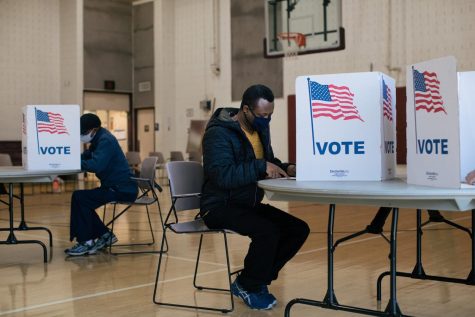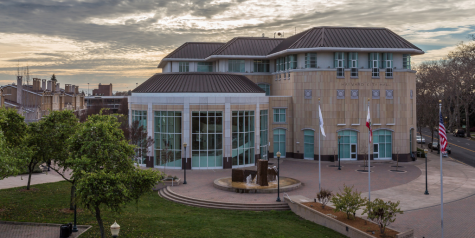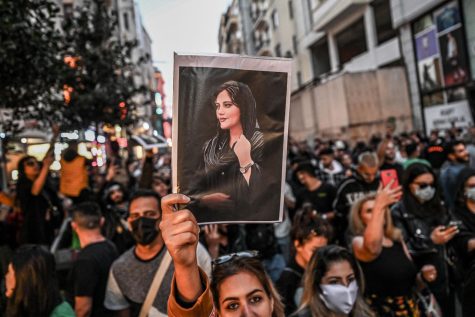Hindsight is 2020: A Proposition 22 Retrospective
November 17, 2021
Are we ready for the future of labor? Moreover, is the future-ready for us?
California voters approved Proposition 22, aimed at designating app-based drivers as independent contractors, during a general election in a 59% to 41% split on Nov. 3, 2020.
Proposition 22 attempts to rectify the issue of vague standard labor laws in application towards independent contractors through accommodating the difference in pay, guaranteeing partial healthcare and insurance coverage through company subsidies, and setting the limit of no more than twelve hours per week.
The Proposition is a partial reversal of the Assembly Bill 5 that was instituted in Sept. 2019, which had previously implemented a three-tiered system of worker classification. Under the AB5 model, persons providing labor or services are rendered as employees and are therefore protected under the Labor Code of California. Meanwhile, the title of an independent contractor depends upon (1) the degree of worker autonomy in the workplace, (2) the proximity of work performed relative to the company’s typical operations, (3) preemptive worker self-agency, and the coincidence of interests between worker and enterprise within a related industry or business.
Despite its short lifespan thus far, the ballot initiative has been subject to much controversy. Supporters of the measure emphasize schedule flexibility for the workers, as well as service efficiency and affordability for the consumer. “If you have some extra time and a car, then you can provide a service that benefits both the workers who want the part-time job, as well as consumers, [bringing] down the cost of taxi services,” explained Prof. Kai Ding, Associate Professor of Economics at California State University, East Bay, specializing in Labor and Macroeconomics. Ding contends that if Proposition 22 allows for an organic increase of supply in taxi and delivery services in meeting burgeoning demand, omitting the customer would not yield a balanced assessment of the ballot measure: “If a proposition is good for the consumers, then it has social merit.”
Detractors of the measure — most prominently, the California Labor Federation — cite the infringement on workers’ protections and rights, corporate reluctance to contribute to the well-being of workers, and the alarming influence of private interest in the state legislature. The Yes on Proposition 22 Campaign netted a total of $205 million in donations from Uber, Lyft, and Doordash, marking the proposition as the most expensive in the state’s history.
“[Proposition 22] ushers in a new culture of how the corporate world engages with the government,” said Dr. Christian Roessler, associate professor in Economics and Microeconomic Theorist at California State University, East Bay.
According to Roessler, “we are entering the vicious cycle of governments trying to overregulate the gig economy, which has been very valuable to consumers and individuals looking for flexibility.” However, Roessler remained critical of the way the proposition was passed and the conspicuous penetration of private incentive into the fabric of law, claiming that “We can’t assume that the public doesn’t want it, but the process shouldn’t look like this. The larger question is whether we want a democratic culture.”
In Aug. 2021, California Superior Court Judge Frank Roesch found the ballot to be unconstitutional, asserting that the power to determine worker compensation is reserved by the state legislature. The Proposition has further drawn the scrutiny of Roesch on the basis of union representation, finding that the Proposition purposefully hinders unionization for economic benefit.
For some drivers, the passed initiative might trigger a reevaluation of career goals for full-time drivers who are impacted the most. “Governments try to implement policies to protect one group, but if we think about the long term, those policies will hurt the exact same people they are trying to protect,” said Ding, continuing that vetoing Prop 22 might give the wrong signal that doing Uber and Lyft is a full-time job.
As an immediate response to the issue, Ding considered the idea of a two-sided contract, wherein part-time workers remain independent contractors to preserve their flexibility, while full-time workers are promised employment benefits. As a long-term vision, Ding suggested that technology is to take the lead in creating missing markets, viewing self-driving vehicles as the ultimate solution to this crisis. As for full-time drivers with fewer options open to them, Ding advocated for a mass retraining program and for UBI programs.
In Roessler’s view, the problem with minimum wage is that it provides negative incentives for job creation, as “for economists, the point of view is that we want good incentives for value to be created. There is a need for safety nets, but we want to decouple them from bad incentives.” As the US continues to shift away from manufacturing, the minimum wage will continue to lose relevance. In that vein, Roessler presumes that the way for the future is to adopt UBI as to lessen the strain on the worker.




